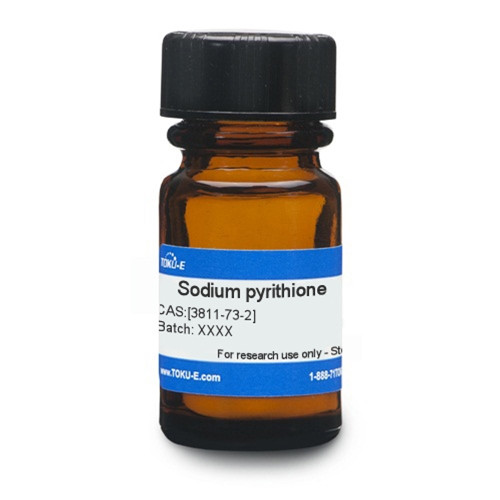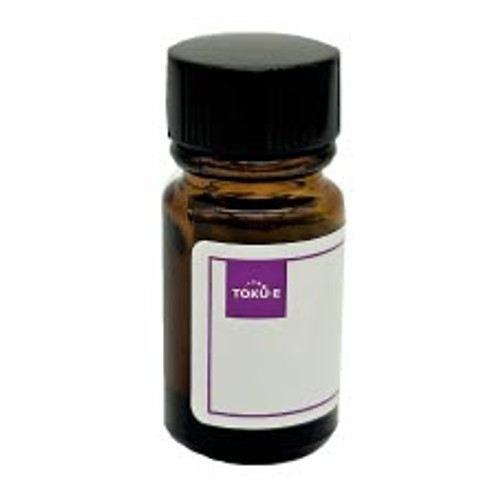Pyrithione Sodium (2-mercaptopyridine N-oxide) is a fungistatic and antimicrobial derivative of aspergillic acid. It is a biocide with a broad spectrum of activity against fungi, Gram-positive and Gram-negative bacteria. Pyrithione has been used to study its efficacy in picornavirus infections. It is used as a cosmetic preservative and it has anti-corrosion properties.
This product is considered a dangerous good. Quantities above 1 g may be subject to additional shipping fees. Please contact us for questions.
We also offer:
- Pyrithione Zinc (P066)
| Mechanism of Action | The mechanism of action of Pyrithione Sodium is yet to be fully elucidated. It appears to interfere with fungal cell walls, associated membranes, and bacterial transport processes. |
| Spectrum | Pyrithione Sodium is active against fungi, Gram-positive bacteria, and Gram-negative bacteria. It is active against Malassezia yeasts. It is active against Staphylococcus and Streptococcus. |
| Microbiology Applications | A simple, quantitative colorimetric spectrophotometric assay for the quantification of pyrithiones based on the chelation of copper (II) ions by the biocide Pyrithione Sodium was developed to determine the biocide distribution in E. coli and P. aeruginosa (Dinning et al 1998). The effect of Sodium Pyrithione on substate catabolism and intracellular ATP using oxygen electrode and luciferin-laciferase technology was examined. Sub-inhibitory concentrations reduce intracellular ATP levels in E. coli and P. aeruginosa are thought to be due the action on the Gram-negative bacterial membrane (1998). |
| References |
Dinning AJ, Al-ADham ISI, Eastwood IM, Austin P and Collier PJ (1998) Pyrithione biocides as inhibitors of bacterial ATP synthesis. J. Appl. Microbiol. 85:141-146 Dinning AJ, al-Adham IS, Austin P, Collier PJ (1998) A novel assay for the distribution of Pyrithione biocides in bacterial cells. Lett. Appl. Microbiol. 27(1):1-4 PMID: 9722990 Dinning AJ, Al-Adham IS, Eastwood IM, Austin P, Collier PJ (1998) Pyrithione biocides as inhibitors of bacterial ATP synthesis. J. Appl. Microbiol. 85(1):141-146 PMID 9721664 Khattar MM, Salt WG and Stretton JR (1988) The influence of Pyrithione on the growth of microorganisms. J. Appl. Bacteriol. 64:265–272 Wang J et al (2019) The performance and mechanism of bifunctional biocide Sodium Pyrithione against sulfate-reducing bacteria in X80 carbon steel corrosion. Corr. Sci. 150:296-308 |








